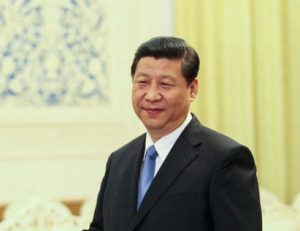
In the fight against the coronavirus, most governments, including some state governments in the U.S., have enacted the Chinese lockdown model for industry. The plan shuts down all “nonessential” activities, lays off workers and expands government benefits and control of society. These massive one-size-fits-all programs deliver predictably inhuman and inflexible results, typical of communist governments.
The problem is that the coronavirus crisis is a human problem. Human problems demand human solutions. Treating human problems in a global, mechanized way treats people like mass-produced goods. It destroys those organic solutions that arise when people employ the original and proportional means that are part of their human nature. Governments need to work with nature, not against it. The Chinese model is an example of how not to deal with a crisis.
The German Model of Lockdown
Consider the German model of industrial lockdown. Germany faced the coronavirus crisis, just like all other Western nations. However, it did not shut down its economy. It did not create mass unemployment or lead vast numbers of companies to bankruptcy. The country employed commonsense measures to deal with the crisis that paid off. Today, Germany has one of the world’s lowest fatality rates and survived the lockdown with its industrial base intact.
Germany is an example of how organic solutions can address a massive crisis. It contrasts with the inflexible Chinese communist model that has devastated many Western economic systems.
Germany is blessed with an industrial base that is different from most developed countries. It relies on a network of medium-sized family-owned businesses called the Mittelstand that serve specialized niche markets to keep its competitive edge. Such companies are very nimble when facing problems. Their manner of acting is more personal. Even huge companies, however, profit from this business culture.
Help Remove Jesus Bath Mat on Amazon
Germany followed three organic principles that saved its industry from devastation.
Using Subsidiarity
First, the German government gave a certain amount of freedom to the business owners. It followed the principle of subsidiarity by which decisions are made at the lowest possible level. Higher levels of authority only intervene when the lower orders are unable to cope with problems.
In the case of the crisis, the government gave business owners the option of staying open. Closure was not mandated across the board, but it was a human decision decided on a personal level. There was also no division into essential and nonessential businesses. All were considered essential and vital as they should be.
The companies had to follow certain guidelines, but how they were implemented was left to them. Thus, more than 80 percent of companies stayed open. Many of them weathered the coronavirus crisis producing at high capacity. Lack of supplies from other countries, not sickness, often slowed production.
Satanic Christ Porn-blasphemy at Walmart — Sign Petition
Human Decisions
Above all, those running the factories were allowed to implement the safety measures they needed to safeguard their workers. The idea behind the decision is that the owners are the best judges of the local situations. They are also the ones who will be held accountable and therefore assume responsibility.
Moreover, German companies took the initiative to enact measures much earlier than the government. They saw the deteriorating situation in China and quickly took action. Managers worked together with workers to improve safety planning.
Flexible Solutions in a Fast-Changing Environment
The final organic principle involves the appearance of spontaneous and original solutions to the problems caused by the crisis. Workers were challenged to come up with ideas to make the workplace safe and productive. Managers found that staggering work shifts reduced risks to exposure.
How Panera’s Socialist Bread Ruined Company
Thus, companies would do their own testing well before the government organized its programs. Some firms would manufacture their own sanitizers and distribute them to workers and communities. Daily meetings by managers and workers yielded an explosive harvest of good ideas that government guidelines could never achieve. Workers felt safe in their factories because they had helped make them safe.
The ability to turn on a dime kept German companies online, while Chinese communist models put “nonessential” companies out of action so that they could not be part of the solution.
Impressive Results
The results of the German model for industrial lockdown are impressive. The Wall Street Journal reports that most German factories will not be facing the irreparable devastation other Western nations suffered. Germany also registered about one-quarter of the number of deaths from the virus as its Chinese model locked-down neighbors. The number of workers diagnosed with the coronavirus was minimal, and most return to work quickly.
Germany will suffer from the worldwide downturn that will cut demand for products. A big part of its economy is geared toward exports and thus will also suffer. However, Germany did not experience the need for massive bailouts, unemployment programs and payroll protection schemes that America had.
[like url=https://www.facebook.com/ReturnToOrder.org]
The question remains. Why are most countries still clinging to the brutal Chinese lockdown model when more human and organic solutions, like the German experience, have proven so much more effective?
As seen on American Thinker.


